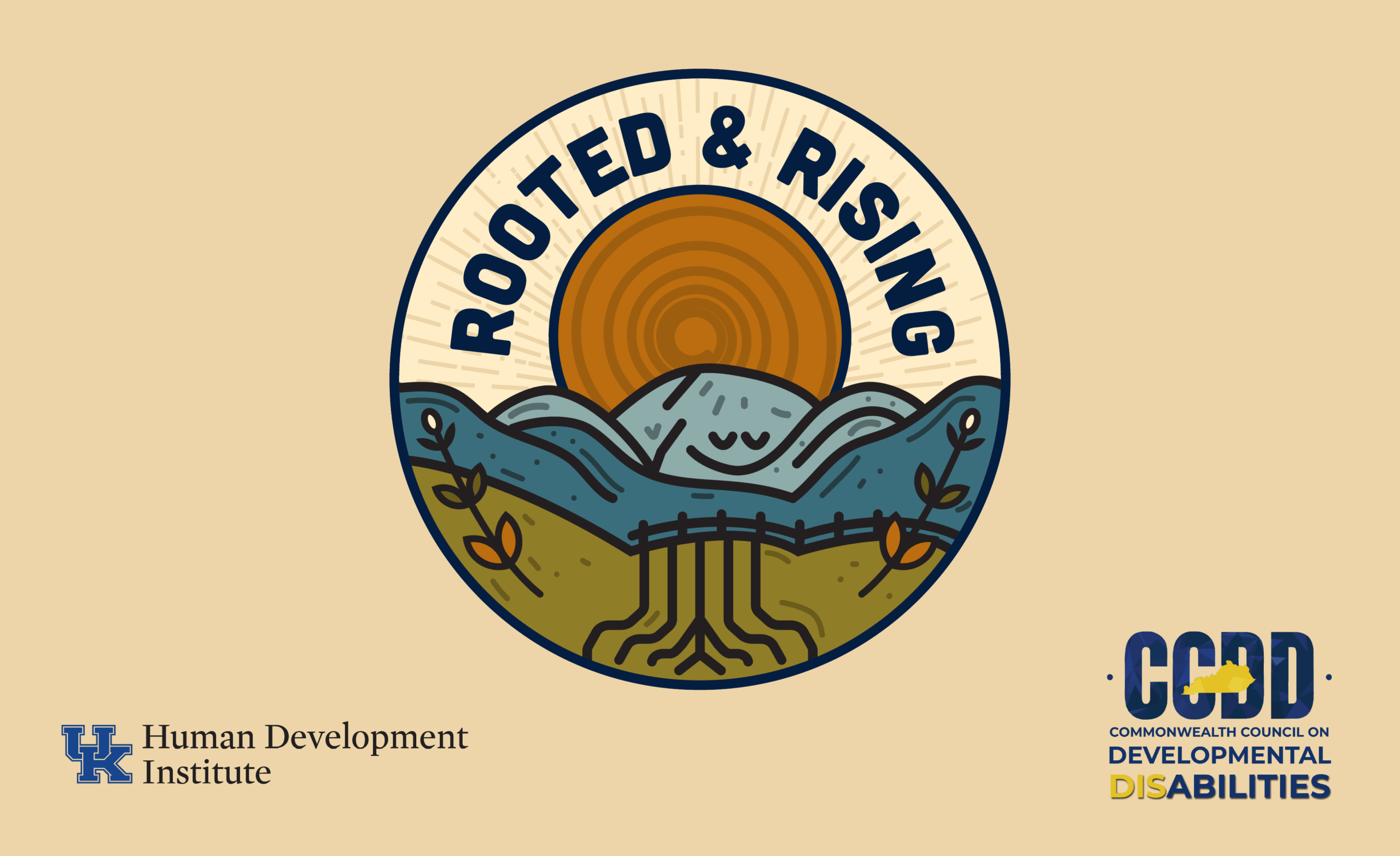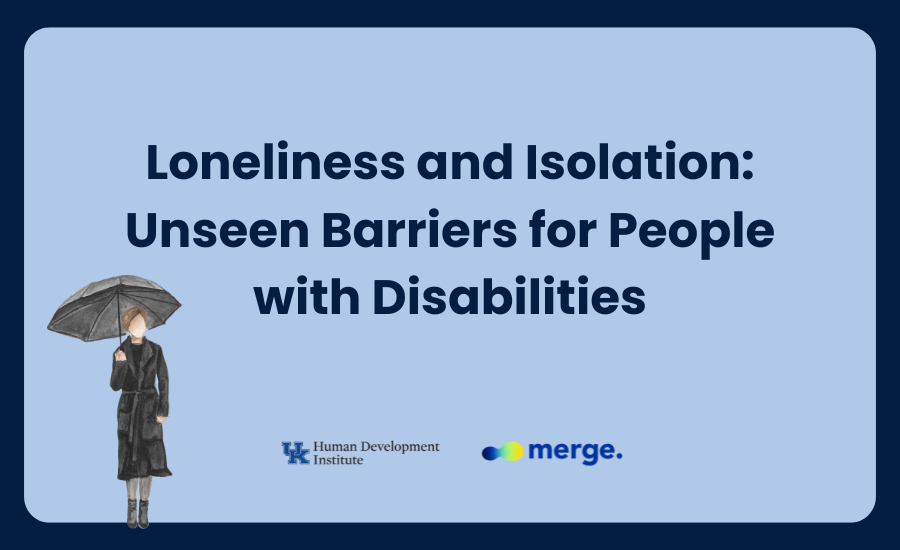Author: Haley Potter
-

Rooted & Rising: Supporting Mental Health in Rural Kentucky
Mental wellness is an important part of living a healthy, meaningful life. Experiencing good mental health helps people handle stress, build healthy relationships, and care for themselves and others. An […]
-

Loneliness and Isolation: Unseen Barriers for People with Disabilities
Just like anyone else, people with disabilities experience mental health conditions like anxiety and depression, as well as feelings of loneliness and isolation. Merge, an HDI project focused on mental […]